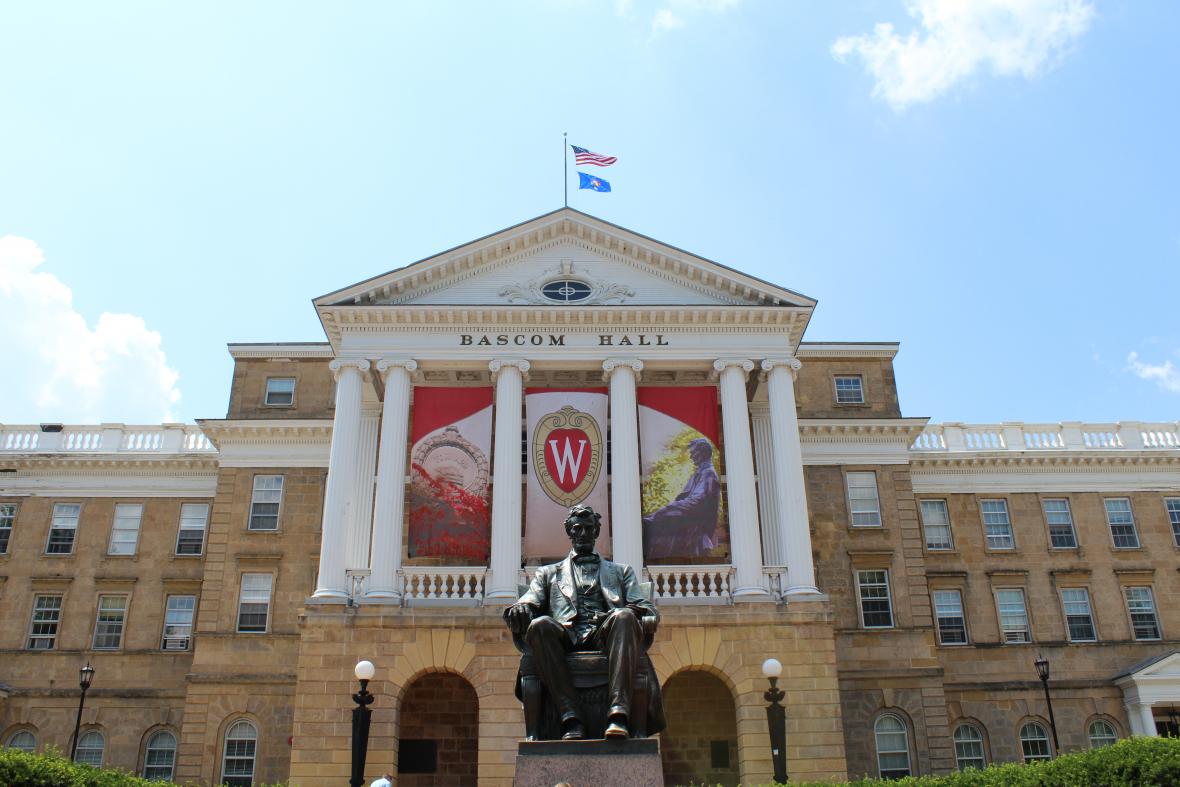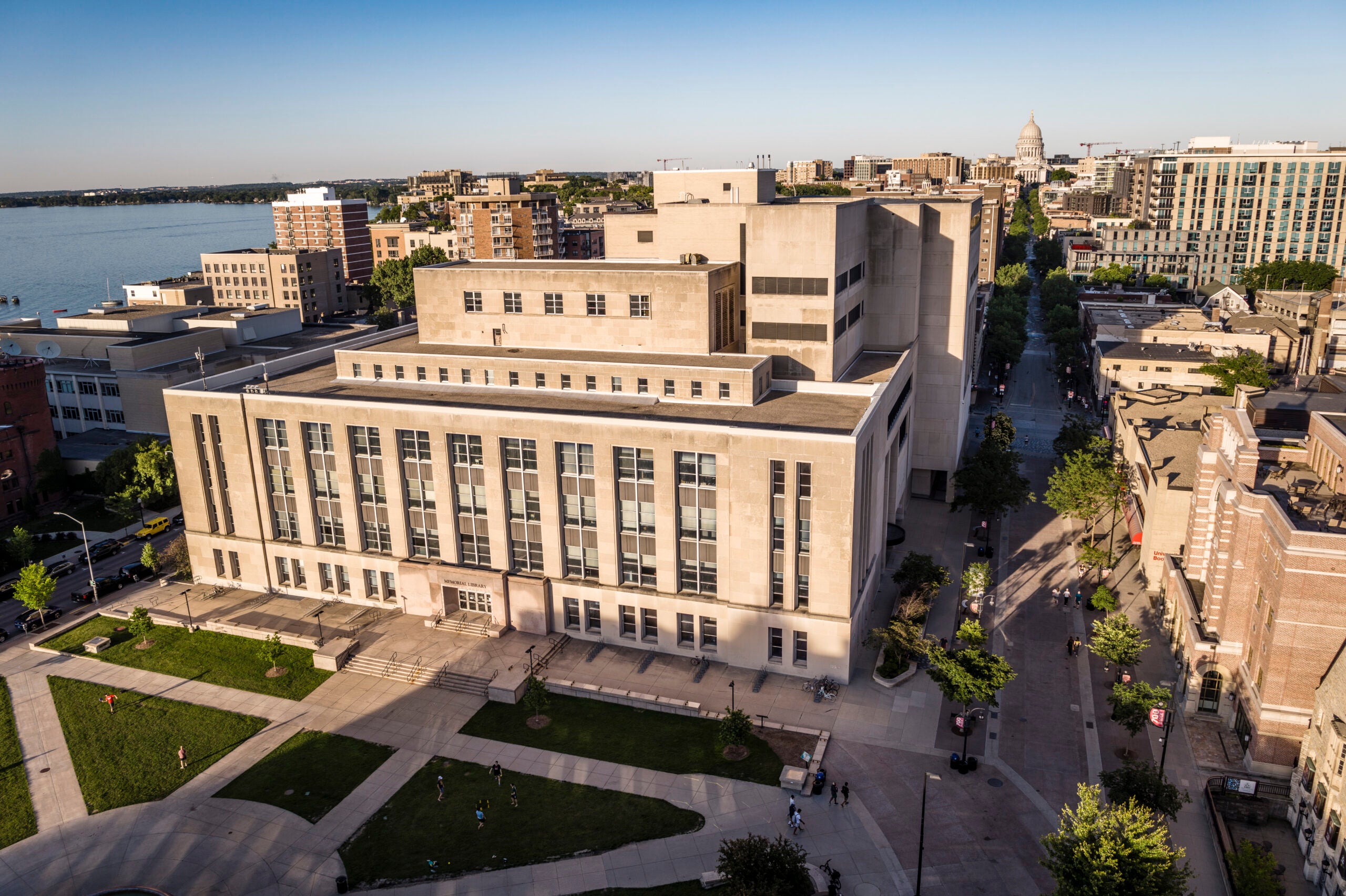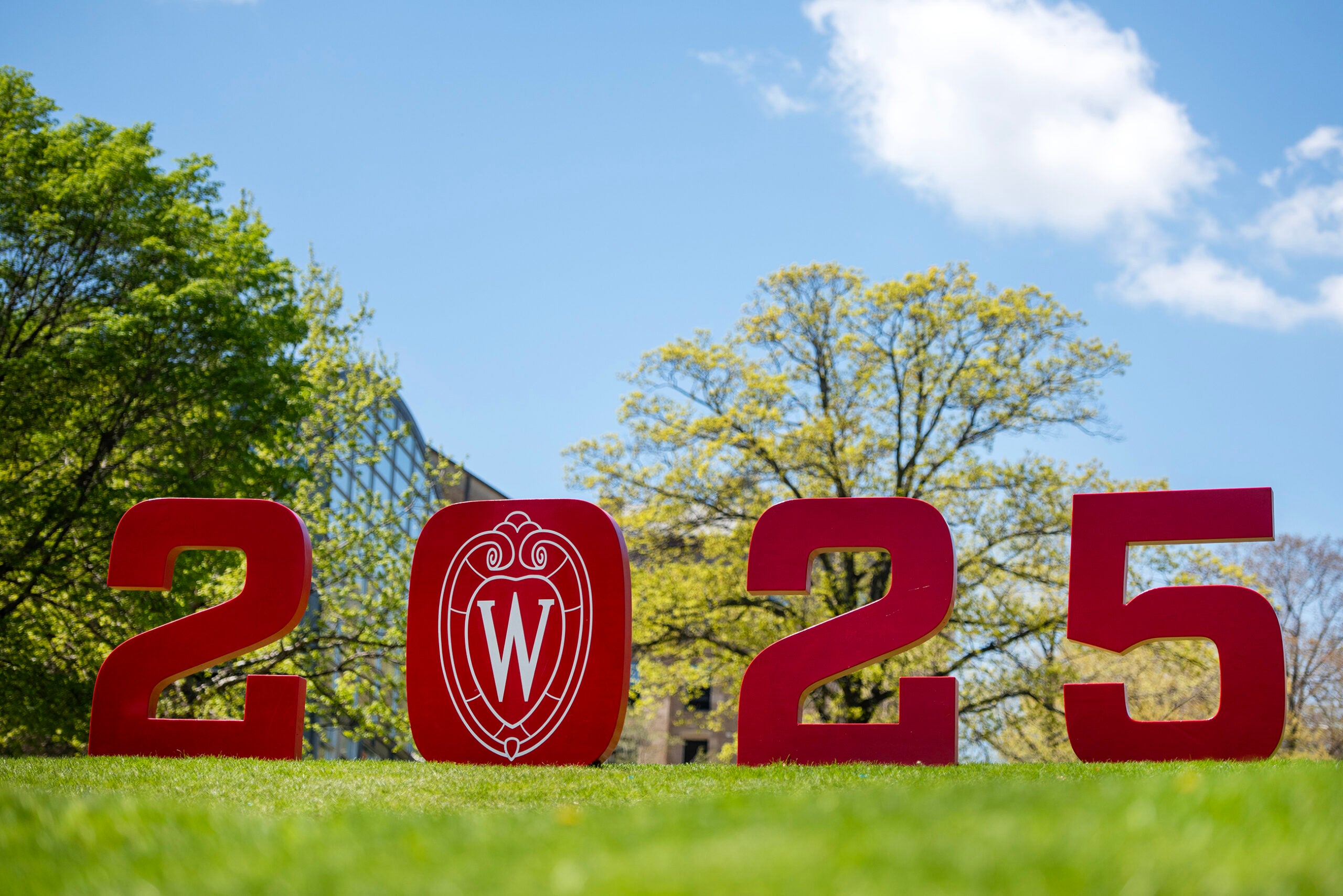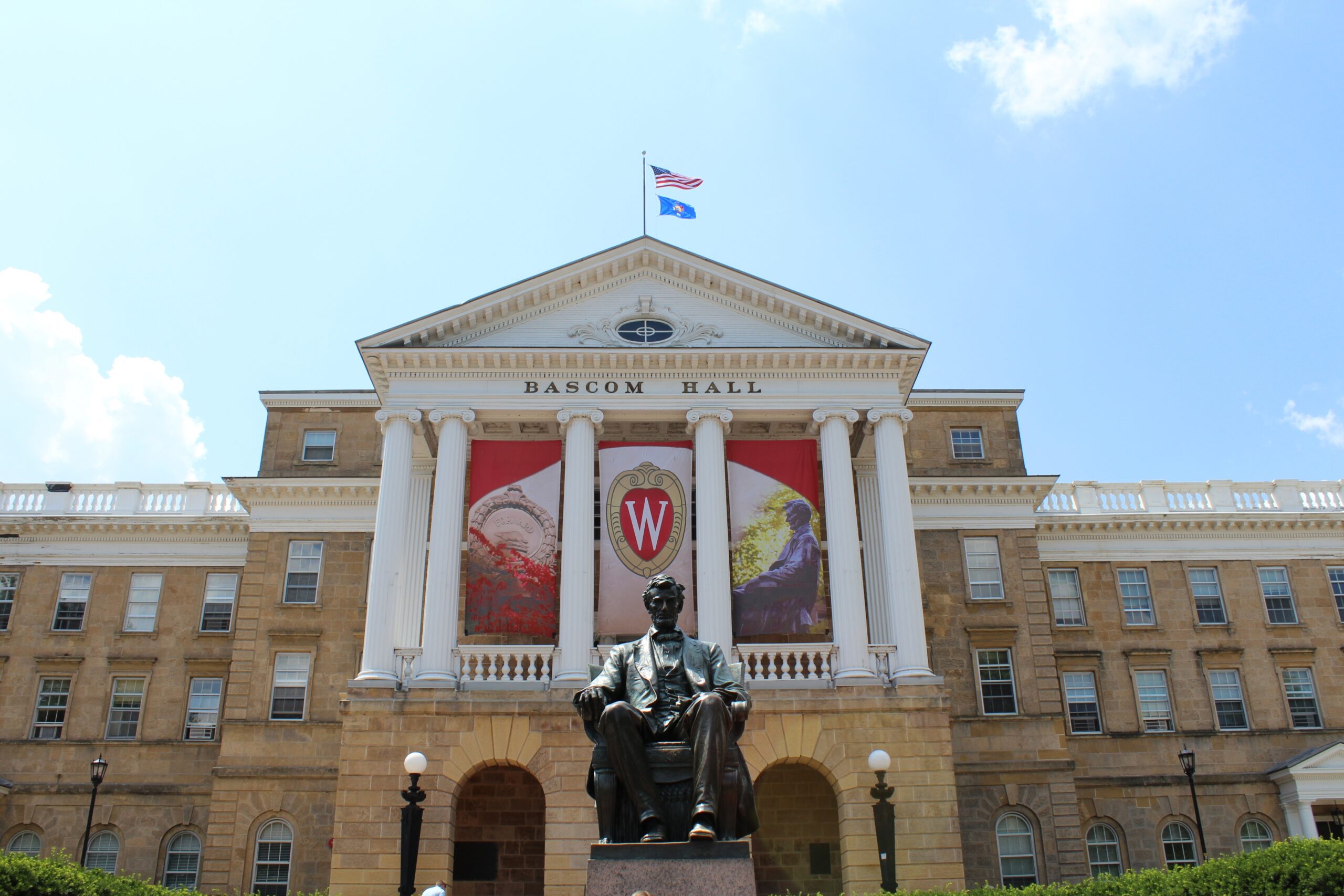The University of Wisconsin-Madison is estimating it will lose $320 million in revenue between March of this year and June 30, 2021. Chancellor Rebecca Blank says even after another round of employee furloughs, the university will face its biggest budget gap in its history.
In a letter to UW-Madison employees, Blank said tuition revenues are down $24 million and research revenues are $28 million lower than anticipated.
“Our budget crisis is exacerbated by the fact that while many revenue sources are down, COVID-related expenses continue to climb,” said Blank.
News with a little more humanity
WPR’s “Wisconsin Today” newsletter keeps you connected to the state you love without feeling overwhelmed. No paywall. No agenda. No corporate filter.
The campus expects to incur around $50 million in costs between July 1, 2019, and June 30, 2020, said Blank. That is because of “a combination of giving GPR (General Purpose Revenue) dollars back to the state due to the Governor’s order to state agencies (a so-called lapse) and covering unfunded pay plan costs,” according to the letter.
On top of that, she described an “uncertain state biennial budget process over the next eight months.”
UW-Madison auxiliary units — divisions that generate their own revenues such as the Wisconsin Union — “have experienced particularly acute revenue reductions,” said Blank. With travel and recreation reduced because of the COVID-19 pandemic, Blank said the auxiliary units alone are facing a $150 million budget deficit.
“Because auxiliary enterprises are self-funding by design and other parts of the budget are strained, auxiliaries will need to resolve their own budget problems,” said Blank, “though campus will try to provide some assistance where we are able.”
The $320 million revenue loss estimate is more than twice the number cited by Blank and other UW-Madison officials over the spring and summer, though Blank said then the actual number was likely to be higher.
Blank said to help stem the revenue losses, UW-Madison will begin another round of employee furloughs beginning in January and running through June 30. They’ve been described as “progressive” furloughs because the number of days employees will be required to go unpaid varies depending on annual salaries.
UW-Madison’s highest paid workers will have to take six unpaid furlough days between Jan. 1 and June 30, while lower paid employees will take three furlough days in that same period.
Blank’s letter states the furlough plan works out to a salary reduction of between 2.5 percent on the low end and 4.6 percent on the high end.
Blank said she will take a 15 percent pay cut during the six-month period and deans at UW-Madison’s various colleges and schools will take 10 percent pay cuts.
Despite the furlough announcement, Blank said UW-Madison is moving ahead with pay increases, approved by state lawmakers in the current state budget. Beginning Jan. 1, UW-Madison’s salaried workers will get a 2 percent pay increase, which she said will buffer the required furloughs.
Blank said the campus will also move ahead with a planned $15 minimum wage for hourly employees as part of an initiative announced in 2019. That pay increase will take effect Jan. 17.
Blank made it clear in her letter that furloughs will not be enough to make up for revenue losses and unexpected costs spurred by the COVID-19 pandemic. She said further budget cuts will be announced for all units on campus receiving what is known as general purpose revenue, or GPR, through June 30, 2022.
“While some further reductions will be necessary, we expect to avoid the sort of dramatic cuts that many feared this year would bring,” said Blank. “This is not to say these cuts will be painless, but we hope a substantial share of these reductions can be achieved through attrition, our hiring freeze, and the other budgetary reduction measures we have already put in place.”
Blank said each school, college and division at UW-Madison will have to find strategies to address immediate and long-term budget deficits caused by the pandemic.
Wisconsin Public Radio, © Copyright 2025, Board of Regents of the University of Wisconsin System and Wisconsin Educational Communications Board.






